NEW STAFF MEMBERS AND FELLOWS - December 2020
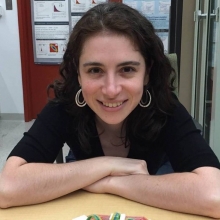
Juliette Alimena
I am a new CERN fellow, working on the CMS experiment. I am particularly interested in looking for long-lived particles (LLPs) beyond the standard model, and in developing the triggers and object reconstruction needed to find them. I received my PhD from Brown University and completed a postdoc at the Ohio State University. Now as a fellow, I will extend my research to LLPs in the context of Compressed Supersymmetry and to the particle flow algorithm at the upgraded level 1 CMS trigger for the High-Luminosity LHC, while continuing my work as a convener of the LHC LLP Working Group.
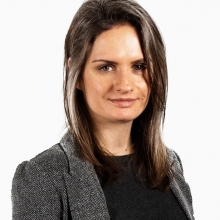
Hannah Arnold
I am an experimental particle physicist joining the CERN ATLAS team as a research fellow in October. I continue to study the properties of the Higgs boson in events where it decays into pairs of b- or c-quarks, and to coordinate the ATLAS efforts in this area. I also keep being involved in calibrating flavour tagging algorithms used to identify jets stemming from b- and c-quarks. Furthermore, I am very excited to explore something new and contribute to a challenging hardware project: the ITk pixel detector. This all-silicon detector is foreseen to replace the current ATLAS inner detector at the HL-LHC.
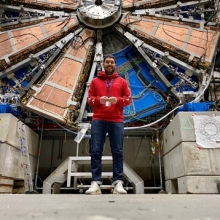
George Chatzianastasiou
I am working as an Electronics Engineer Fellow in the ATLAS New Small Wheel project. In particular, my main responsibility is the design, verification and commissioning of the NSW Trigger Processor, an embedded platform -that based on HEP detector electronics- identifies, process and monitors muon candidates. My undergraduate studies in Electrical and Computer Engineering have been followed by a specialized MSc in Analog & Digital Integrated Circuits at Imperial College London. Before joining ATLAS, I worked for Nokia as a SoC Verification Engineer in various 5G mobile network projects at the company’s headquarters, Helsinki, Finland.
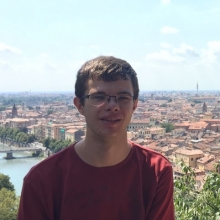
Jonas Hahnfeld
I am a computer science graduate from RWTH Aachen University and joined EP-SFT in November. During my fellowship, I will participate in the group's R&D effort for particle simulations. The goal is to develop demonstrators that make use of the compute power of heterogeneous architectures, such as GPUs. This includes adapting and developing components for geometry navigation and management of dynamic track populations on these devices. Furthermore I will also work on GPU related topics in the ROOT framework and its RooFit library.
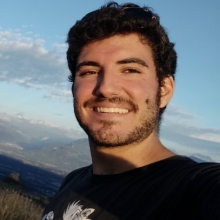
Pablo Marin
I am an Industrial engineer from Madrid, and I started my Fellowship in November in EP-CMX. I have been in CERN for a year and some months as a Technical Student in the EP-DT-FS section. Here I started my first steps in the cooling projects of CMS experiments. As a Fellow, I will continue working on CO2 calculations for new on-detector circuitry (MTL and CE) and upgrade of present systems (ECAL). I will develop also integration tasks for surface activities in Point 5, such as cooling and dry air systems for detector testing.
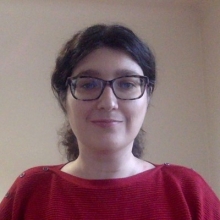
Rosa Simoniello
Since October 2020, I am a LD researcher working with the ATLAS collaboration. My activities are focused on searches for new physics, more particularly on Supersymmetry. Most recently I worked on a search relying on the identification of charm quarks in the final state and I am currently one of the ATLAS Supersymmetry group coordinators. I have recently joined the ATLAS trigger group for the upgrade and operation of the ATLAS Central Trigger Processor and Muon Interface for Run3. Finally, I have a strong and active interest in studying the feasibility and reach of new colliders and experiments.
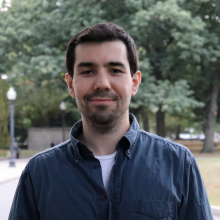
Kaya Tatar
I am a research fellow working in the CMS experiment. I am interested in understanding the properties of quark-gluon plasma (QGP) that can be created in heavy-ion collisions. To do that I plan to study the interactions between QGP and showers of energetic partons. The work involves analysis of the recorded data as well as preparations for the upcoming experiments in the LHC Run 3. Besides, I would like to contribute to the development of future experiment projects, in particular the CMS High Granularity Calorimeter.
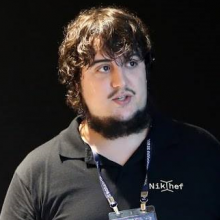
Carlos Vazquez
I have joined the LHCb Collaboration in 2012, as a summer student, shortly after obtaining my BSc degree. My initial interests as a Ph.D. student focused on the VELO Upgrade and precision measurements of CP violation. However, in 2015, I started to become more interested in searches of BSM low mass particles at LHCb, mostly in the context of Dark Matter. This, together with the preparation of triggers for Run 3, became my main research lines as a senior fellow. On top of this, I have been also maintaining software projects and coordinating numerous efforts on data processing at LHCb.
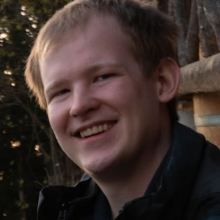
Timo Wilken
I recently graduated with a Master's degree in geology from the UK, where I was involved in various student computing clubs. At CERN, I will be working on software development for continuous integration as part of the ALICE
experiment (EP-AIP-SDS). Part of this will be helping the developers of software like O² and AliPhysics test their contributions automatically, and looking after the computing infrastructure that makes this possible.
experiment (EP-AIP-SDS). Part of this will be helping the developers of software like O² and AliPhysics test their contributions automatically, and looking after the computing infrastructure that makes this possible.
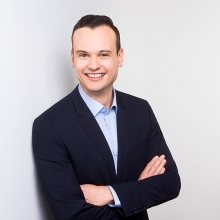
Felix Zahn
I am a senior fellow and new member of the readout team of the ATLAS data-acquisition system. I have a background in physics and computer engineering, and I recently received a PhD in computer science at Heidelberg University for my research on energy efficient interconnection networks for high-performance computing. At CERN, I will contribute to the commissioning and operation of both legacy (ROS) and new (FELIX) readout infrastructures. In particular, my work here will focus on software development and commissioning in collaboration with the detector systems.
This also includes the role as local connection for remote hardware, firmware and software developers.
This also includes the role as local connection for remote hardware, firmware and software developers.
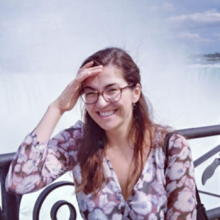
Mariana Zimbru
I am a structural engineer with a PhD in advanced design of steel structures, particularly matters of connections and seismic design. I joined the EP-NU team as a project associate in February this year and as a Fellow I will continue working within the LBNF/DUNE collaboration. As a member of the DUNE Compliance Office my work concerns the verification of the mechanical safety aspects, including assessment of mechanical design validity and code compliance, supporting the technical teams of the project consortia and establish equivalency between European and US codes.
